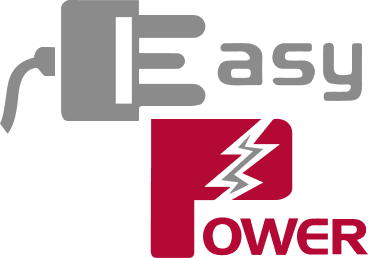Power backup systems play a crucial role in Uganda, a country where access to reliable and consistent power supply can be a challenge. Frequent power outages and unstable electricity grids can disrupt daily life and have a significant impact on businesses and industries. To mitigate these issues, power backup systems have become increasingly important in Uganda.
This article will explore the significance of power backup systems in Uganda, their benefits, and the different types of backup systems available in the market.
The Importance of Power Backup Systems in Uganda
Reliable Energy Supply: Power backup systems serve as a reliable alternative source of electricity during power outages. They ensure uninterrupted power supply, minimizing downtime for businesses, hospitals, and other essential services.
Business Continuity: In a world heavily dependent on technology, power outages can lead to financial losses and operational disruptions. Power backup systems enable businesses to maintain productivity and data integrity during blackouts, protecting them from potential revenue losses.
Improved Quality of Life: Power backup systems provide households with the assurance of uninterrupted power supply, ensuring continuous lighting, refrigeration, and the operation of essential appliances. This is particularly vital in rural areas where power outages are more frequent.
Factors to Consider When Choosing Backup Systems in Uganda
When selecting the best backup system in Uganda, several factors should be considered:
Power Requirements: Assess your power needs and determine the capacity required for your backup system. Consider the appliances, equipment, or critical loads that need to be powered during an outage.
Fuel Availability: Evaluate the availability and accessibility of fuel sources in your area. Different backup systems require different fuels, such as diesel, solar energy, biogas, or a combination of sources.
Cost Considerations: Determine your budget and assess the upfront and operational costs of different backup systems. Consider factors such as fuel costs, maintenance, and potential savings from uninterrupted operations.
Environmental Impact: Consider the environmental implications of the backup system. Opt for systems that are energy-efficient, use renewable energy sources, or have minimal emissions.
Reliability and Maintenance: Research the reliability and maintenance requirements of each backup system. Choose systems that have a proven track record, offer warranty coverage, and have accessible service and maintenance support.
Types of Power Backup Systems in Uganda
Let’s explore some of the best backup systems available in Uganda:
System A: Solar Power with Battery Storage
Overview: Solar power systems with battery storage provide a clean and renewable backup solution. Solar panels capture energy from the sun, which is stored in batteries for use during power outages.
Key Features:
- Reliable and environmentally friendly.
- Long-term cost savings and reduced reliance on fossil fuels.
- Requires sufficient sunlight and initial investment in solar panels and battery storage.
- Minimal maintenance required.
System B: UPS (Uninterruptible Power Supply)
Overview: UPS systems are commonly used for short-term backup power. They provide immediate power during outages and allow for a smooth transition to a backup power source.
Key Features:
- Instant power supply during outages.
- Protects sensitive electronic equipment from power fluctuations.
- Limited backup time depending on battery capacity.
- Ideal for critical applications such as servers, medical equipment, and telecommunications.
System C: Hybrid Power Systems
Overview: Hybrid power systems combine multiple energy sources, such as solar, wind, and diesel generators, to provide a versatile and reliable backup solution. These systems optimize the use of renewable energy while ensuring backup power availability.
Key Features:
- Reduces reliance on a single energy source.
- Increased efficiency and flexibility.
- Suitable for various applications, including remote areas.
- Requires integration of different components and proper system design.
System D: Diesel Generators
Overview: Diesel generators are a common choice for backup power in Uganda due to their reliability and availability. They are capable of providing continuous power for extended periods.
Key Features:
- High power output and durability.
- Suitable for both residential and commercial applications.
- Requires a steady supply of diesel fuel.
- Regular maintenance and occasional refueling are necessary.
Frequently Asked Questions (FAQs)
The cost of a battery backup unit can vary depending on factors such as capacity, brand, and features.
The best backup power source depends on individual needs and requirements. Solar power with battery storage is a popular choice due to its reliability, sustainability, and long-term cost savings. However, the best backup power source for a specific situation may vary based on factors such as power needs, availability of fuel, and budget.
A power backup system, also known as a backup power supply or uninterruptible power supply (UPS), is a system that provides electricity during power outages or disruptions in the main power supply. It ensures uninterrupted power to critical loads or entire premises, allowing for continued operations and minimizing the impact of power cuts.
Various devices can provide power backup, depending on the backup system in use. For example, diesel generators, solar panels with battery storage, UPS systems, and biogas generators are some devices that can provide backup power in different scenarios. The specific device used depends on factors such as power requirements, fuel availability, and environmental considerations.
Conclusion
Power backup systems play a crucial role in ensuring reliable and uninterrupted power supply in Uganda. They provide businesses with the ability to continue operations during blackouts, safeguard essential services, and enhance the quality of life for individuals and households. By investing in appropriate backup systems such as UPS, generators, solar power systems, or battery storage, Uganda can overcome the challenges posed by unreliable power grids.
For reliable power backup solutions in Uganda, contact Easy Power Company at +256-789-931735. Ensure uninterrupted energy supply for your home or business.


